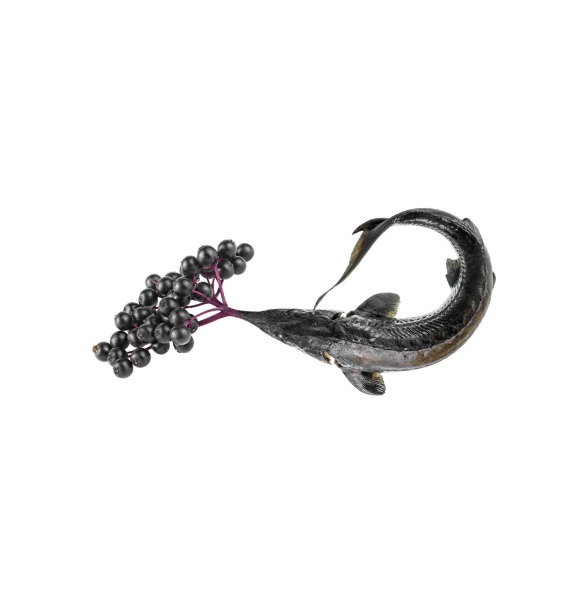Interview
Pellicer: “You have to enjoy what you ingest, but digestion should be enjoyed even more”
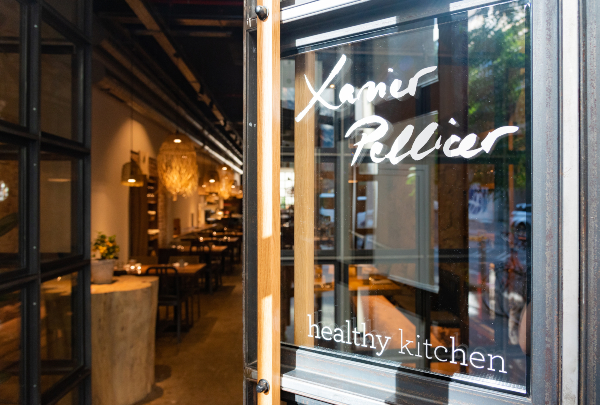
With three decades working in the kitchens of others, Pellicer found his own voice.
A voice we heard hints of at Céleri, one of his last projects before going it alone. We talk about his evolution to when he discovered the plant-based world and Ayurvedic techniques.
What will your talk at Madrid Fusión be about?
Firstly, I want to talk about what we’re doing at the restaurant and our view of the world of plants. We’ll present a zero-waste dish. At the restaurant we work in a circular way with all our produce. For example, with leeks we use the root, stalk, and the green parts. It’s an exercise in making the most of the entire ingredient. We want to show what we do, how we do it and where we are now.
This reinterpretation of your cooking comes hand in hand with a personal evolution...
Yes, I always say that these changes are linked to changes in personal awareness. In this regard, I changed pretty drastically, especially after Santi Santamaría passed away. After he died, luck wasn’t on our side and that same year we lost a star. I had put on a few too many kilos and didn’t have very healthy habits... One morning, I got up, looked at myself in the mirror and realised that I couldn’t be a substitute for Santi, that that wasn’t my intention and I wanted to continue being me, Xavier Pellicer.
What was the next step?
I studied biodynamic agriculture to understand it. On the course, I met Ángela Sanz of the International School of Ayurvedic Culture. I now apply all this knowledge to my recipes. The exercise involves combining the ingredients I use with these techniques. I seek energy, have total respect for plant produce, always try and use organic, although this isn’t due to any fashion but because I believe it does make a difference.
In 2005, I opened Céleri. It became a new kind of place because – without even doing it consciously – I was offering plant-based dishes that included vegan, vegetarian as well as meat and fish. It was an exclusive place, but it didn’t exclude. It’s the path that we’re following today at Xavier Pellicer, which opened three years ago. For the first time in 30 years I’m not working with a partner. I can now express myself with total freedom − it’s so much more comfortable and I can do things the way I want.
Can we say that with this restaurant you’ve found your culinary voice?
Yes, absolutely. At the end of the day, you can internalise and not have to externalise: this arouses people’s curiosity and they want to know what we’re doing because we create interest. The best thing is the content, what’s at the heart of the idea you're trying to convey, and our cooking very much embraces this. The way we understand and interpret things is what differentiates us. Our aim is for people to leave here and have, above all, a good digestion. It’s another of the elements I introduced in my way of understanding cooking: enjoy what you ingest, but digestion should be enjoyed even more. It’s essential.
Do you find that when you follow your own path and not that of others, that the message is seen as more authentic and you can go further?
Yes, that’s exactly it. When I explain all that, I don't get things wrong because I’m not playing a role; I explain my reality and it’s a lot easier.
If I've got avocados that I’ve ripened myself, that have never been refrigerated, and I offer them when they are at the peak of perfection because I’ve brought them up from Málaga wrapped in straw, then simply char grill them, I let those avocados speak for themselves. After tasting them, people tell me they've never eaten an avocado quite like that. It’s logical because every avocado is unique and has a unique recipe, and, if on top of that it's prepared as it should be and you treat it like a living being, in the end, it shows.
Leeks are brought to me with their roots attached, I don’t want anything cut off. I believe that vegetables are often amputated. Let me explain: If you cut your finger you bleed, it’s stressful, you get nervous, it hurts and all that creates reactions in your body; it’s somewhat the same in the plant world.
Pedro Sánchez, at Bagá, says that the nuances that vegetables offer are simply not there in meat. Do you agree?
Yes, they are two different elements. Each has its own language. Our culture is totally omnivorous. However, we’ve not integrated the plant world to the same extent, and it’s only now that we’re realising that each plant has as many nuances as you can find. And more so with the techniques available to us today: you can cure, ferment, dehydrate, macerate, infuse, etc. I also believe that the sooner you prepare these ingredients and the sooner they are placed in front of a diner, the more successful you’ll be.
What’s the most popular dish on your menu?
A cauliflower dish...
Interesting...
Yes, because our childhood memories evoke stinky smells, that smell of unappealing food, of an overcooked vegetable that’s even unpleasant to eat... We suddenly decided to envisage it like a purée. It’s true that we have a high-pressure oven that allows us to really retain the fibre, texture, mineral salts, etc. That gives us an advantage. That’s where you can see that technology applied to cooking is important and shouldn’t be forgotten... it’s about technique, technology, the know-how of each cook and the way of understanding what we like to do. It’s all a question of interpreting the world in which you move.
And there's another important factor. Growers today are keen to take part in what we do. My grower in Viladecans, whose produce is organic, has planted salsify; I buy practically all of it as he grows it for me. We also look at the year to see what produce is available each season and we work with that. There’s feedback regarding their interest in growing new produce and working with vegetables to bring out the best in them. When the box his seventy-year-old father made for me arrives and he says, ‘this is for Xavier because he understands; or, I’ve included some shoots I’m sure he’ll find interesting,’ he knows that it’s going to excite me, and it’s this closeness that makes us noble.

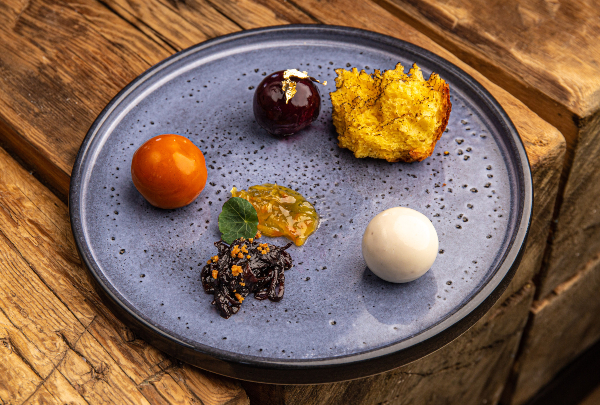
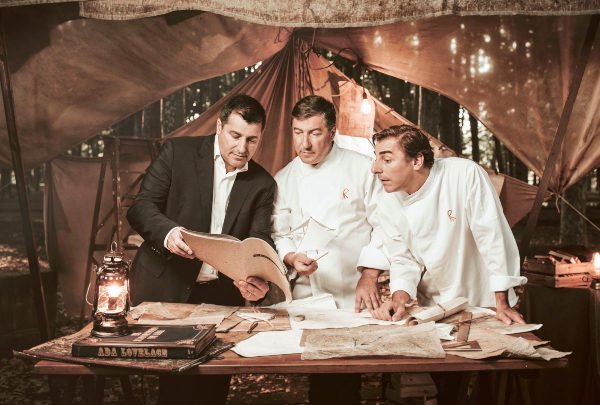
 600x405.jpg)
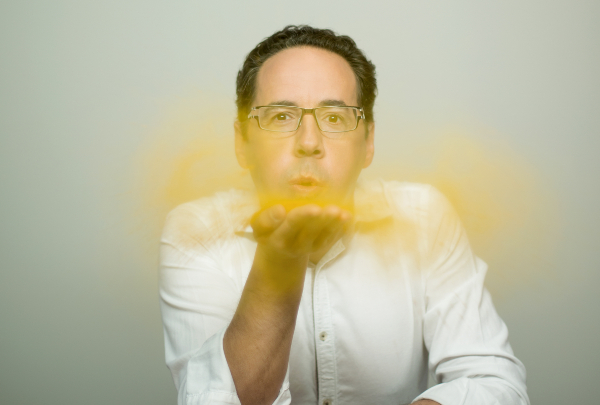
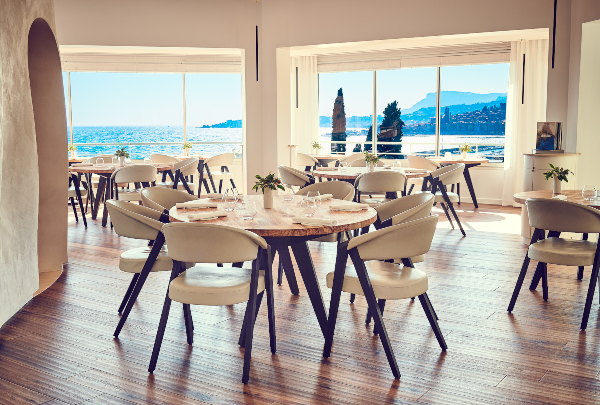
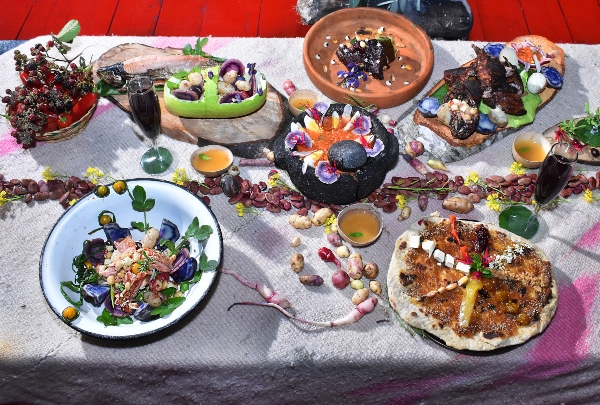
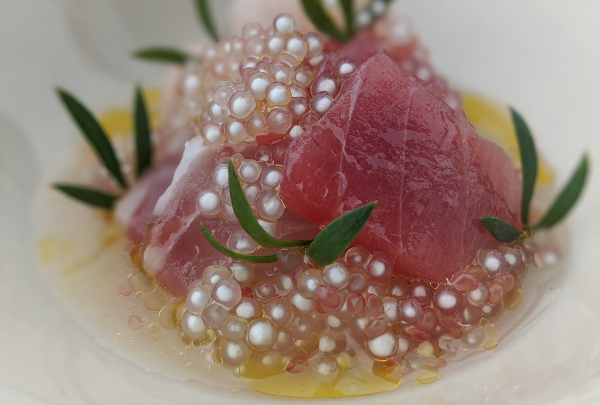
600x405.jpg)
.jpg)
.jpg)
